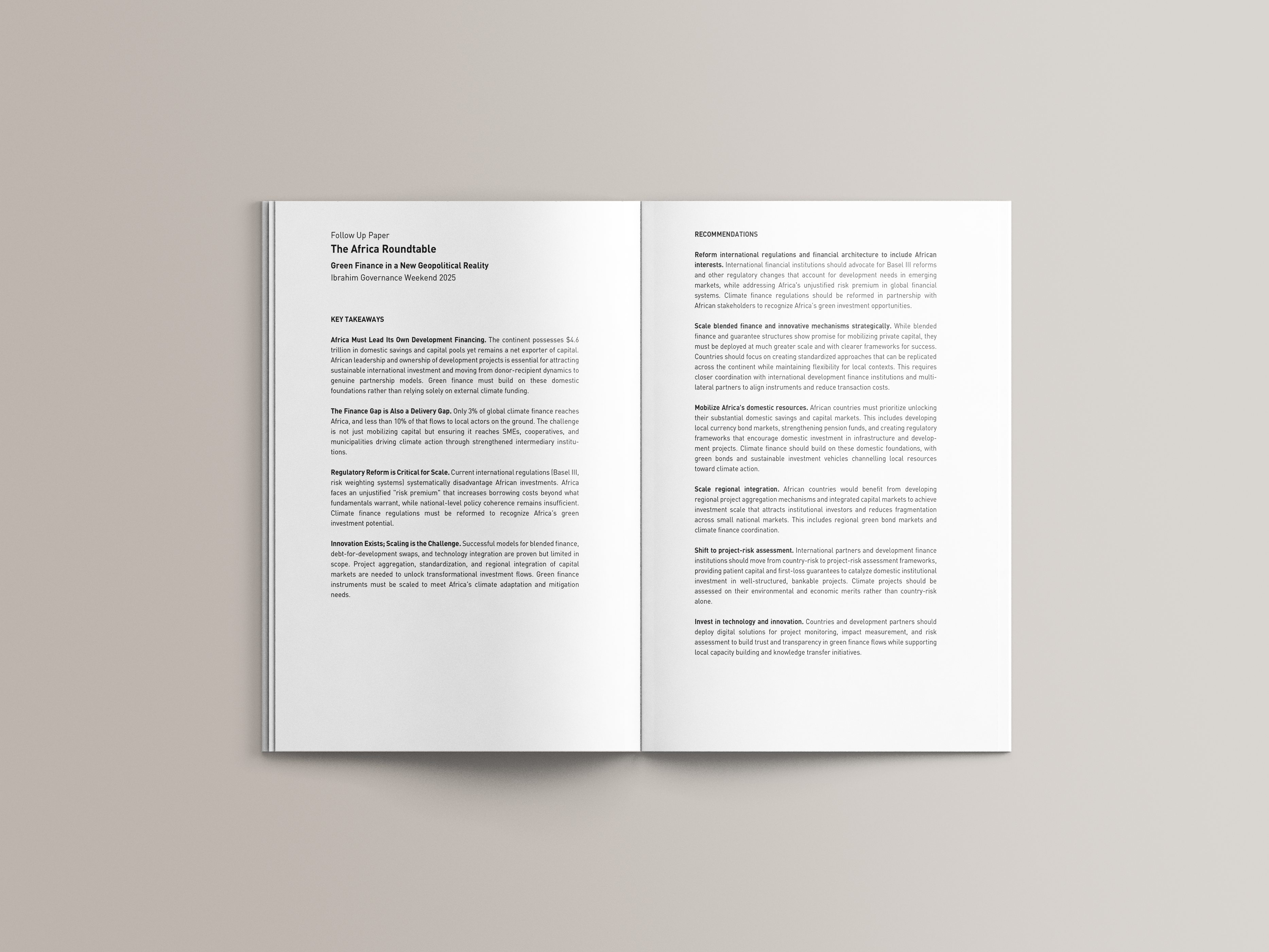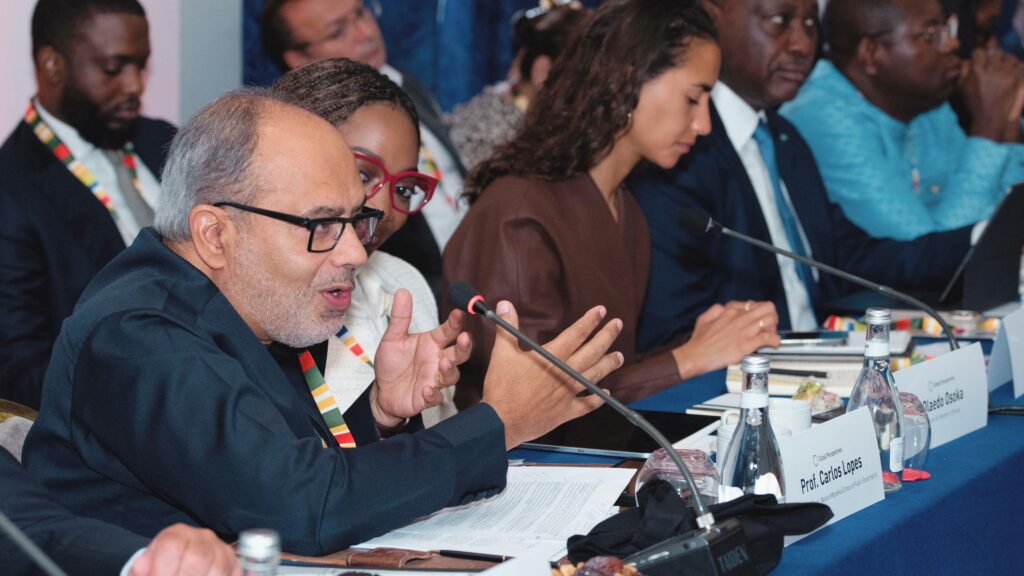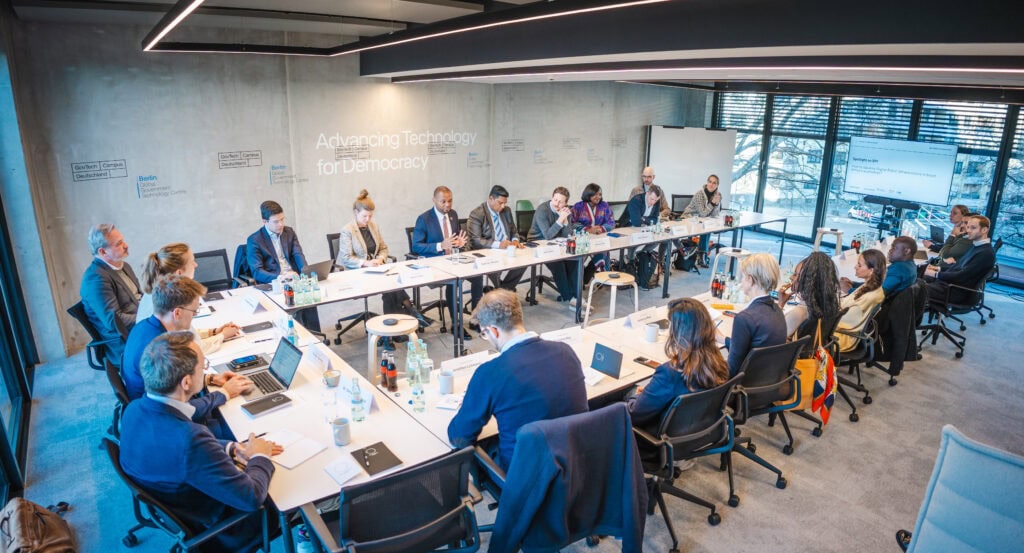Publications
The Africa Roundtable N°4
Action Recommendations
The Africa Roundtable: The Africa Roundtable N°4
May 2023
Mit Mo Ibrahim
The fourth edition of The Africa Roundtable took place in Nairobi on April 28 as part of the prestigious Ibrahim Governance Weekend (IGW). Under the overarching theme of “Global Africa,” the IGW gathered decision:makers from both continents to debate Africa’s position in the world and the interests of global actors on the continent.
While the last roundtable in Dakar in November 2022 was dedicated to joint plans for a just green transition, energy and agriculture following COP27, this time we focused on perspectives arising from global geopolitical shifts. The need for decoupling and diversification sheds a different light on Africa and marks a turning point in European-African economic relations.
Under the credo “Roadmap to Africa,” we have sought sectors where trade and investment relations can be deepened to mobilize private and institutional finance and develop new economic perspectives for Europe-Africa cooperation. Honest and trusting partnerships between Africa and Europe have enormous potential for economic prosperity. However, there are a number of challenges that need to be overcome to ensure that these partnerships are sustainable and mutually beneficial.
Geopolitical Change
Europe should recognize Africa's global importance and the current turning point in its economic history, act accordingly and make better offers in the face of growing competition. The loss of trust between the two continents should be mitigated by honoring (financial) commitments, reviewing frameworks, sharing data and recognizing respective interests. Both sides should move beyond a transactional approach to economic cooperation. Compared to competitors, sustainability could be Europe's global unique selling point.
Institutional Challenges
African governments must ensure through appropriate reforms that economic growth benefits the broader population and reaches people beyond the political and economic elites. Africa should speak with a unified voice on the international stage and further strengthen the pan-African trade and regulatory framework to increase confidence and planning certainty for external actors. Multilateral bodies such as the G7, G20, and financial institutions must give Africa a seat at the table as a full member or a member with greater decision-making power. Europe must acknowledge the adverse impact of the regulatory framework on economic partnerships.
Financial Architecture
The focus of partners on both sides must shift from extracting raw materials to creating sustainable value chains and local production in proven as well as innovative high-tech sectors. Debt servicing and high risk premiums should be offset by credit rating reforms and data sharing to provide African states with access to affordable financing. Foreign direct investment should be encouraged through more public guarantees from sovereigns and development banks. SME finance needs more technical advisory and intermediary capacity to ensure implementation on the ground.
Contact Persons
Stephanie Igunbor, s.igunbor@globalperspectives.org
Supported by
BDI The Voice of German Industry
BDI Bundesverband der Deutschen Industrie
BMZ Bundesministerium für wirtschaftliche Zusammenarbeit und Entwicklung
BMZ Federal Ministry for Economic Cooperation and Development
The Africa Roundtable
The forum for decision-makers on African-European cooperation, which deals with current pressing issues and challenges of the neighbouring continents and develops partnership-based solutions.
Program Archive
Amid shifting global dynamics, investing in Africa’s strengths in renewable energy and climate action is more urgent than ever. The action recommendations of the eighth conference.
How can Germany build strong, sustainable relationships with countries in the Global South that benefit both sides? At HSC 2025, we continued the dialogue on the Commission's recommendations.
At the eighth edition of The Africa Roundtable, we discussed how to rethink and strengthen sustainable finance in Africa through strategic partnerships with Europe.
The Commission “A Changing World – Germany and the Global South” presents its recommendations as a basis for addressing key strategic decisions facing Germany today.
How can Germany's international cooperation become more sustainable? After a year of intensive work, the Commission presented its final report recommendations for discussion.
DPI can help bring large populations online, driving economic growth. We highlighted the range of benefits of this new concept at our follow-up to the seventh edition of The Africa Roundtable.
The Commission "A Changing World - Germany and the Global South", chaired by Annegret Kramp-Karrenbauer, presents its first impulses ahead of the German federal elections in 2025.
With data emerging as the key driver of future economic power, Africa's digital transformation is critical and urgent. The action recommendations of the seventh conference.
The seventh edition of the Africa Roundtable focused on the importance of digital infrastructure and data sovereignty for the digital revolution on the African continent.









